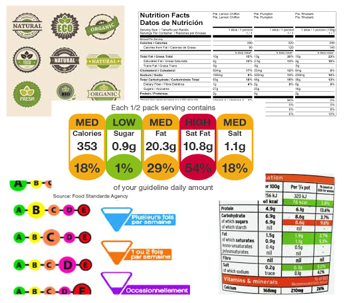
Several European countries are setting their own laws and reglementation for nutritional labeling without any coordination or consultation for a common approach for the sake of the European consumers.
Thus, it will be a new set and layer of data to be managed by brands, to be provided to the consumer.
And we’re not done…
Following the multiple food scandals, some countries are making mandatory to provide additional information about ingredients used in food products: for meat, brands should specify the type, origin, quantity… making product information management more and more complex.
With the rise of the e-commerce, we can, easily, imagine that this era of data inflation is not fin
ished.
To answer these needs and regulatory requirements, companies are reacting under pressure, stacking layers of software, managing multiple Excel files or even still working “a la mano”… or worse, not answering the legal demands.
In all cases, they are going to dedicate lot of resources, time and energy… providing a bad answer to consumers: For the same product and attribute, we may have different values per country, leading to lack of trust towards the brand and/or the seller.
How to change this situation and answer consumer demands?
It’s becoming critical for companies and brands to consider their product data as a strategic asset with a global vision of issues and implications of product information.
As number of data sources, points of consumption and stakeholders are increasing, setting a data governance will help brands and companies to face these challenges especially in the e-commerce sector.
